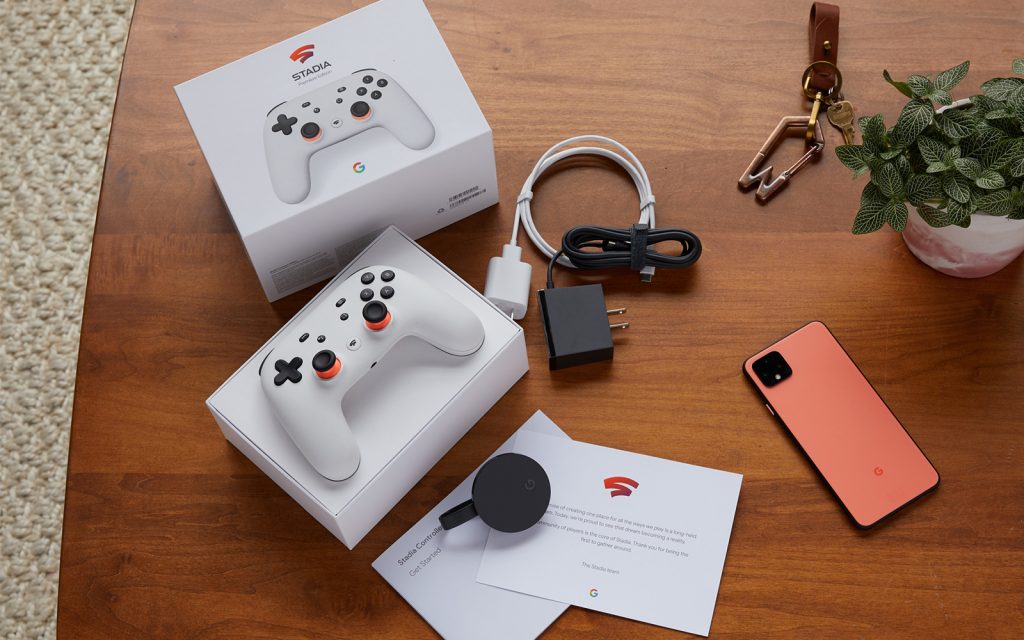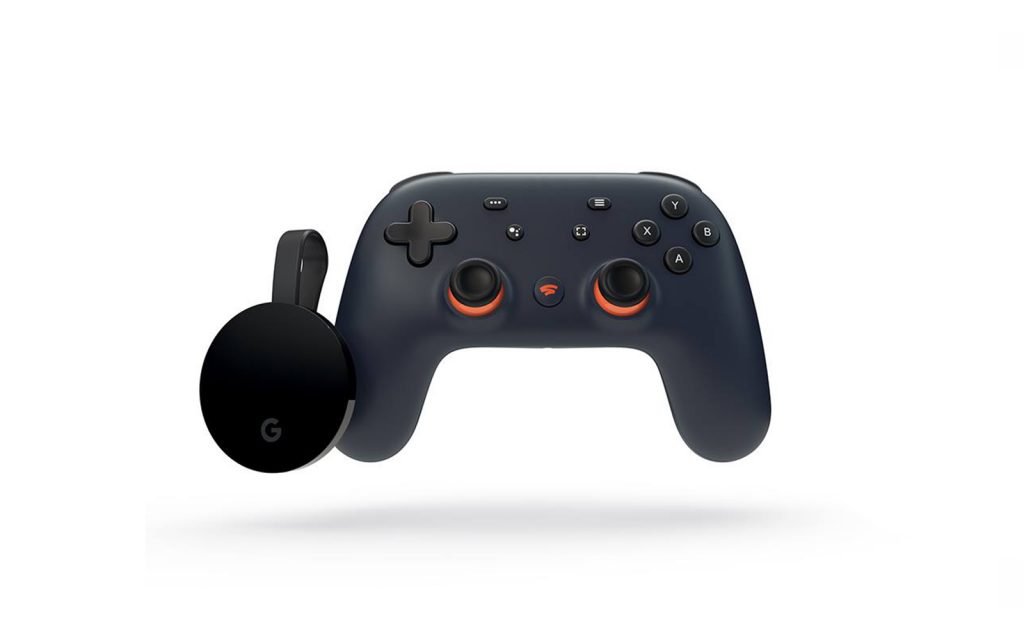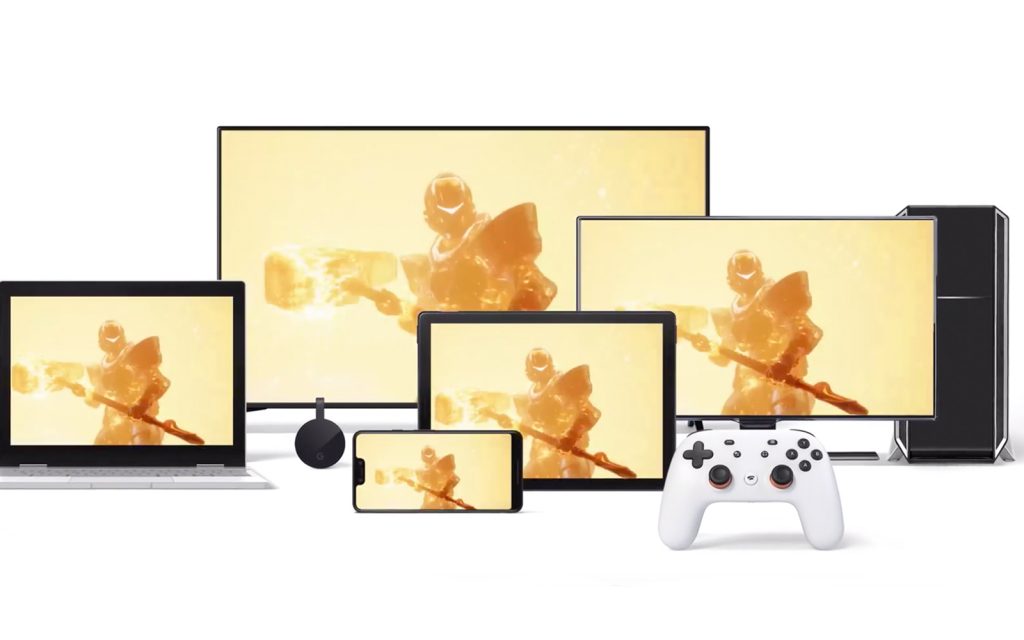Google Stadia Shows Infinite Potential
Cloud-based gaming hasn’t worked in the past, but the conditions are right for the tech giant to enter the market

Rather than localizing the millions of gamers that go online each day to consoles with limitations in each person’s home, Google Stadia aims to bring the entirety of the gaming industry online. The proposition, when introduced earlier in 2019, raised eyebrows as no longer would gamers claim physical ownership of their console or games, as purchases would be relegated to a distant server under Google‘s control. Despite being Cloud-based, there is hardware accompanying Stadia’s launch: a controller that comes in four colors and a Chromecast Ultra, should you buy into their bundled package.

The release (despite the skepticism it’s been met with from some of the industry’s most seasoned reviewers) proves promising for a bevy of reasons. Though we’ve grown accustomed to instantly streaming YouTube videos on our phones, computers and TVs, video games haven’t followed suit. That isn’t for a lack of trying or demand. It’s taken years for a company to commit to dedicating significant resources and bandwidth to the idea—and no company is as uniquely suited to command the Cloud-based gaming market as Google. They’re already in control of a massive network of servers capable of relaying games instantly, and their designers and developers are some of the best in the world.
Further, at-home internet is better than ever, and more and more individuals favor mobility, thus many may be more likely to choose Stadia. It’s cheaper than platforms with costly consoles and can be played on phones (all generations of the Pixel), computers (in Google Chrome or on a Pixelbook), and TVs (with Chromecast)—over an Xbox or a Playstation.

As Google does with most of its larger software launches, Stadia’s rollout will begin slowly and gain steam as demand increases—a plan that runs in direct opposition to competitors’ console launches. The system, when it launches tomorrow, will come with 22 games—some new, some old, and some specifically refreshed for this launch. The Founder’s Edition (which was available for pre-order until selling out just over a week ago) comes with a special edition blue controller, a Chromecast Ultra, and three months of Stadia Pro, which grants access to discounts on top-tier games, 4K streaming, 5.1 surround sound, and an eventual multiplayer platform. The Premiere Edition proves exactly the same, except for a variation in controller color and less lead time for securing a stylish username and the sought-after Founder’s Badge that comes with being one of the first to commit to their console-less concept.

Though Stadia does clean up clutter that’s typically blamed on owning a console with multiple wires and dozens (sometimes hundreds) of game boxes and discs, there’s a significant adjustment to be made for those transferring from an Xbox or a Playstation to Stadia. If Google were to crash, terminate the project, or cut ties with a game-maker, games would be gone and controllers would be useless. But Google insists that Stadia will be treated with the same care the brand has afforded to projects like Gmail and Google Photos. If this is true, Stadia’s success is likely, and a consensus shift in consumer habits—from owning physical copies to operating within the cloud exclusively—should follow.

The platform in its current state is impressive already: latency proves non-existent; games open immediately and can be closed just as quickly. The graphics—which boast minimal variation between phone, computer and TV—are superb. Though the list of available games is brief (though Google upped the count from an original 12 to 22 today), there are more set to be available before 2020 arrives.

There’s a confusing hiccup, for anyone who expects to pick up the controller and play immediately, in the start-up sequence. Despite being anti-console, a smartphone and the Stadia app are required for initial set-up, purchasing games, as well as account and setting changes. It’s possible, given the crossover capabilities, that keeping the smartphone in the loop will subtly remind the gamer that these games can be played there—with a hardwired controller—and within a Google Chrome browser window. On the contrary, typing in lengthy account information—payment methods, names, emails, and more—proves easier on a smartphone than parsing through a keyboard with the controller’s pads or toggles.

To discount Stadia as an ambitious yet ultimately doomed stab at Cloud-gaming would require overlooking Google’s successes—and history of dedicating substantial talent and resource—elsewhere. If nothing else, Stadia’s launch with cosigns from major game developers is proof of the company’s ambitions for innovating within the gaming market.
Google Stadia launches tomorrow, and Founder’s ($129) and Premiere Edition ($129) packages will arrive to consumers in the order with which they were purchased. More games and a Stadia Base subscription (free) will be available in 2020.
Images courtesy of Google












